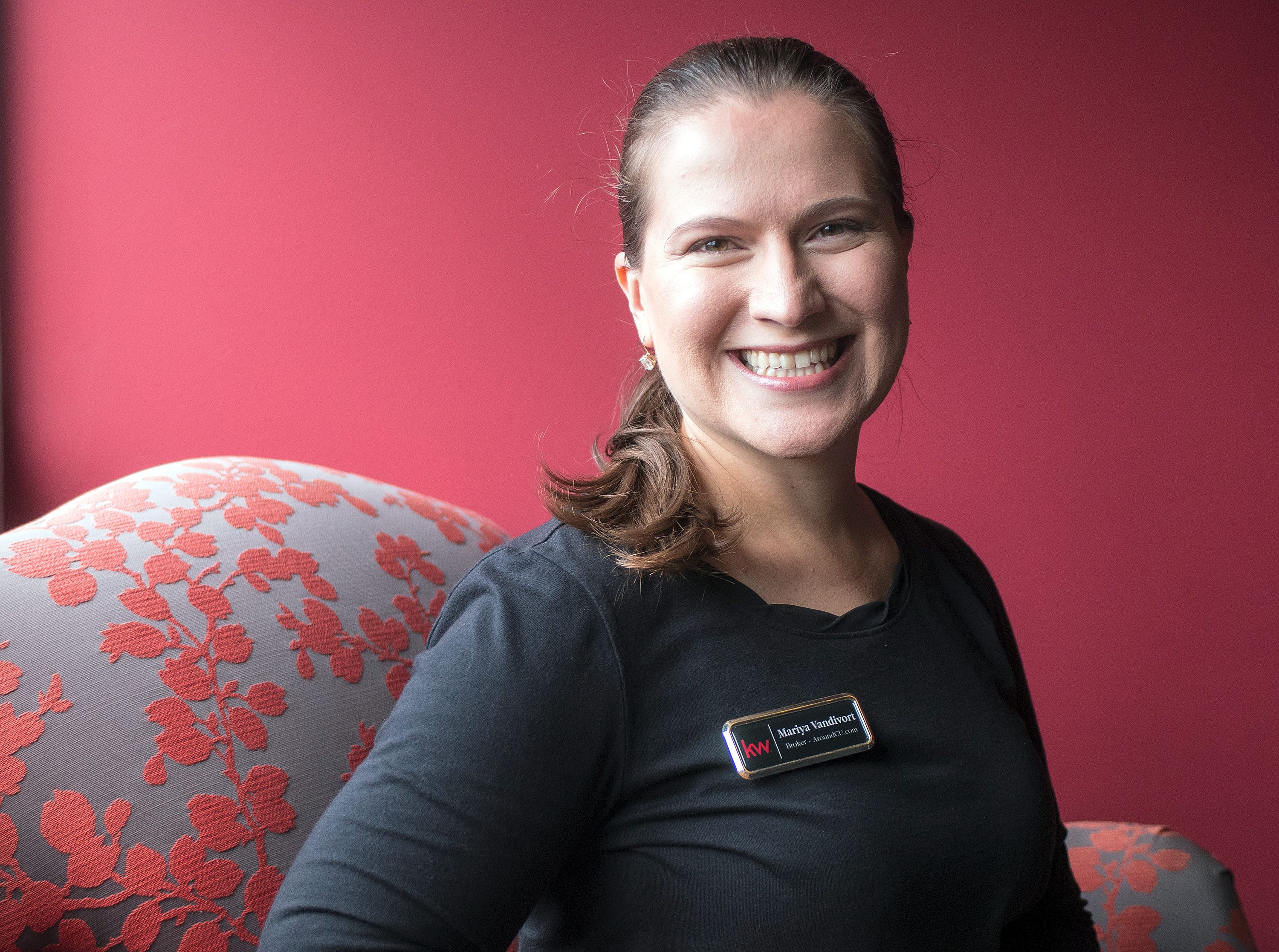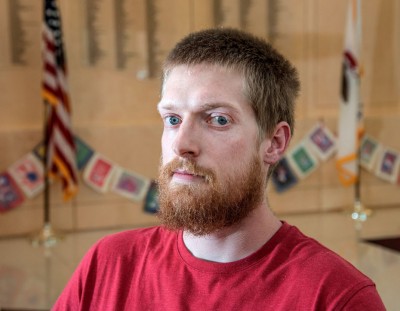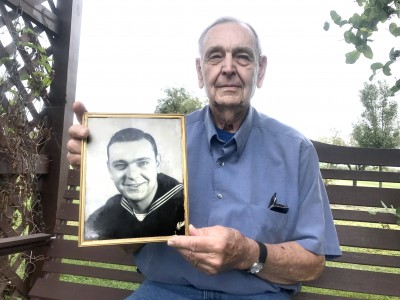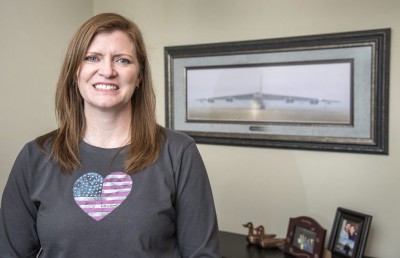Mariya Vandivort
By Paul Wood

Photo By Stephen Haas/The News-Gazette
CHAMPAIGN — Whether in Illinois or Nicaragua, Mariya Vandivort was the go-to officer for translation or interrogation.
She was an officer in the Illinois Army National Guard until in 2010, serving as an interrogator, intelligence platoon leader and a general’s aide.
Her last position was as the intelligence officer for a chemical battalion, where she planned the battalion’s response to Illinois’ homeland security threats.
Now a Realtor in Champaign, she came to this city by a winding road. She’s a transplanted patriot.
Her parents were engineers. She was born in Norilsk, Siberia, in Russia, and spent her early childhood in Kharkov, Ukraine. Her family moved to Chicago in 1989 and then to Des Plaines in 1991.
Her parents were not able to return to their earlier professions. Her father worked on the assembly line at Borden Foods — Cracker Jack! — and her mother taught at a Montessori school after getting further education.
While her parents struggled through ESL lessons, Vandivort has no noticeable accent.
“They say that 10 to 11 years old is the age limit (for losing an accent),” she said. “You’re able to lose your accent pretty well, but after that, you will always keep a hint of it.”
She started at the University of Illinois in the fall of 2000 and enlisted in the National Guard in April 2001, eventually serving almost a decade.
“I did basic training at Fort Sill, Okla., and took a semester off college, the first semester of my sophomore year, to do advanced individual training,” she said.
“I could have chosen a different specialty that didn’t require the length of training that the human intelligence collection specialty required.”
She has degrees from the Urbana campus in economics and in Spanish. She is fluent in Russian and Spanish and “can get by in French and, of course, English on a good day.”
“After I was commissioned (as an officer), you have more of a staff role within the unit. As a second lieutenant, I became intel officer at my Chicago unit,” she said. “Everyone in the unit spoke a different second language, so we did do a lot of training related to questioning and different techniques.”
The interrogation she did wasn’t any spy movie stuff.
“It’s really funny, because we tend to think we can’t just ask normal questions, that we have to use some technique, do some sort of mind tricks to get some sort of response. But the one thing I learned in training that really sticks out is that 90 percent of the time that you just ask a normal question, you will get an honest answer,” Vandivort said.
After that posting, she became an aide-de-camp, a general’s aide, for 18 months.
“That was a really fulfilling position, a lot of hard work. You had to anticipate the needs, the trappings, all the arrangements. You had to do whatever it took to make the general look good,” she said.
Then another turnaround.
“I was the intelligence officer for a Homeland Security unit. The training entailed figuring out ways of coordinating the state’s response in the event of a chemical, biological or nuclear attack,” she said, glad that she never had to use her training in real life.
There was also entirely different work.
“We did a humanitarian mission in Nicaragua back in 2002; different units went from village to village helping provide medical care or veterinary care, and also constructing schools,” she said.
It wasn’t just a job; it was an adventure.
“The roads are bad; it would take hours to get somewhere. The way that we would be transported would be in a completely covered vehicle where we could not see anything outside at all, or at the back of an ambulance, a military ambulance,” she said.
The troops were given a “country study,” what to expect knowing the history, the culture, any U.S. involvements, recent conflicts.
“We knew that it was safe being in that environment, even being pitch black and the road shaking the truck — and knowing that it had not been too long since there had been anti-American activity in that area,” she said. “It was something that was very interesting to ponder — and to remember why it was that we were there: to help.”
During that time, she had the opportunity to use her Spanish skills in interpreting.
“I really enjoyed my time in the service. I’ve thought the compulsory service other countries have is not a bad idea. The military teaches a sense of teamwork and how great this country really is,” she said.
She met husband Kirby at church here in Champaign; he also works in real estate.
Do you know a veteran who could share a story about military service? Contact Paul Wood at pwood@news-gazette.com.
Read more stories from local veterans:
 Brent Blackwell
URBANA — In five deployments to Afghanistan, Staff Sgt. Brent Blackwell was a medic for an elite unit, the Army Rangers, …
Brent Blackwell
URBANA — In five deployments to Afghanistan, Staff Sgt. Brent Blackwell was a medic for an elite unit, the Army Rangers, …
 William Schuldt
BUCKLEY — William (Bill) Schuldt, one of five brothers in the armed services, served in the Seabees, the Navy’s engineer …
William Schuldt
BUCKLEY — William (Bill) Schuldt, one of five brothers in the armed services, served in the Seabees, the Navy’s engineer …
 Lizabeth Wenzel
MAHOMET — Lt. Col. Lizabeth Wenzel flew an un-manned flight. She was part of a “chick flight” on a B-52, all five crew m …
Lizabeth Wenzel
MAHOMET — Lt. Col. Lizabeth Wenzel flew an un-manned flight. She was part of a “chick flight” on a B-52, all five crew m …